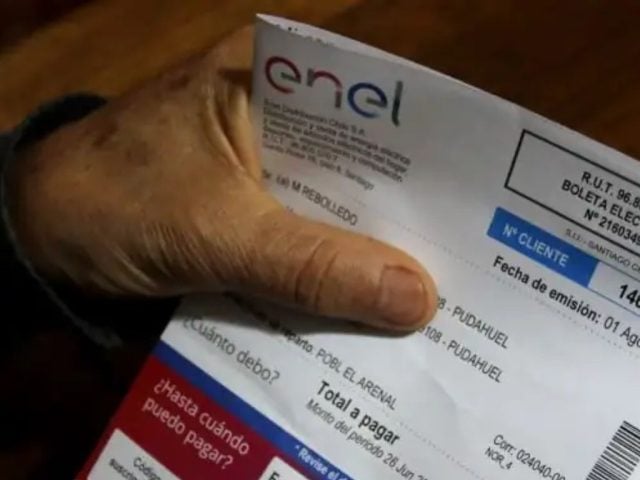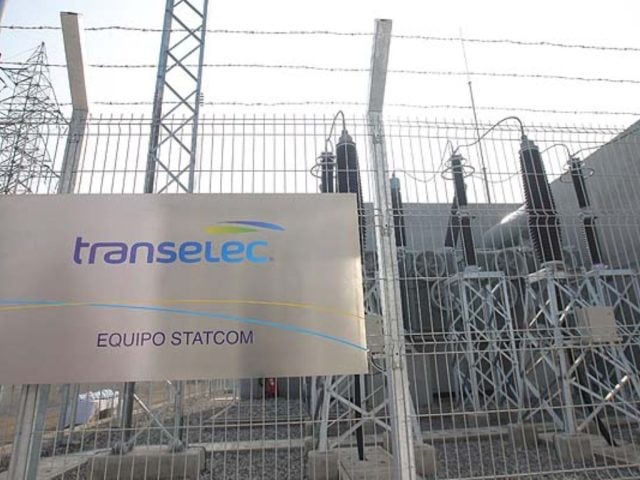Original article: En medio del “error metodológico”: Corte ordena a Enel refacturar cobros excesivos y acatar a la SEC
Amid a significant controversy in the country following a preliminary technical report from the National Energy Commission (CNE) that identified a «methodological error» in electricity pricing over the past eight years, the Ninth Chamber of the Appeals Court of Santiago accepted a protection request and ordered Enel Distribución Chile S.A. to strictly comply with a prior directive from the Superintendency of Electricity and Fuels (SEC), mandating the company to reissue excessive charges applied to a customer.
In a unanimous ruling delivered by judges Maritza Villadangos and María Paula Merino, alongside legal advisor Cristián Parada, the court categorically established that Enel’s actions were «illegal and arbitrary» for failing to rectify the bills for electrical services overcharged to the complainant, M.F.P., during the period from October 2023 to July 2024.
The case traces back to a complaint filed by the user with the SEC, a technical body that, after analyzing the situation, issued ordinary letter No. 244123 on September 3, 2024. In this document, the Superintendency explicitly instructed Enel not to charge the amounts billed during the contested months and to proceed with a specific rebilling for that period.
However, according to the ruling, the distribution company «blatantly disregarded the aforementioned administrative resolution» and failed to fully comply with the order.
Enel Failed to Justify Billed Amounts
The judicial resolution underscored the shortcomings of Enel’s defense. The court determined that the company failed to justify its actions.
«From the analysis of documents provided by the parties, the allegations of the complainants, what was reported by the defendant, and especially by the Superintendency of Electricity and Fuels, it is possible to reaffirm that Enel Distribución Chile S.A. did not manage to explain the amounts billed to the actor during the disputed period or how they arrived at those figures. The defendant also did not indicate the actual electricity consumption of the complainant’s property during the time they were questioned and scrutinized by the regulatory authority,» the court indicated.
The appellate court noted that the SEC had provided a clear and detailed instruction to correct the error, which was ignored by the electric company.
«Indeed, as indicated in the information provided by the Superintendency of Electricity and Fuels, in response to a complaint from the actor regarding the aforementioned charges made during the previously mentioned period, said technical entity ordered Enel Distribución S.A. not to bill the charged amount for the contested months and to order the rebilling for the period without a reading in question, limiting it to double the monthly average for that period, without the company having fully complied with that decision.»
Arbitrary and Illegal Conduct by Enel
The court qualified Enel’s behavior as a «persistent noncompliance» with the administrative authority, rendering its actions «arbitrary.» The ruling explicitly connected this arbitrariness with the infringement of consumer rights:
«All the uncertainties referred to… are not justified in any way, nor is there a reasonable excuse regarding the persistent noncompliance with the orders issued by the technical administrative authority, all of which makes the actions of Enel Distribución S.A. arbitrary, since despite the complainant’s requests and what was ordered by the SEC… the defendant persisted in excessive and illegitimate charges.»
In its conclusion, the appellate court stated that the company’s behavior «appears, therefore, whimsical, unfounded, and, hence, illegal, evidencing among other violated guarantees, the infringement of the complainant’s property rights.»
As a result of this analysis, the Appeals Court resolved:
«The protective action filed by M.F.P is upheld, with costs solely against Enel Distribución Chile S.A. (…) and, to restore the rule of law, the aforementioned electric distribution company is ordered to strictly comply with what was mandated by the Superintendency of Electricity and Fuels through ordinary letter No. 244123, dated September 3, 2024.»

Ruling Amid “Methodological Error”
The appellate court’s ruling transcends this individual case, sending a strong message to regulated service companies about the obligation to comply with the instructions of regulatory bodies like the SEC, establishing that refusal to do so, coupled with a lack of coherent technical explanation, constitutes illegal and arbitrary conduct that undermines user rights.
This ruling comes at a time when the public is debating the CNE report revealing that for years, Chilean families paid more than they should have due to a pricing error in the electric system.
The core of the issue, according to the document, lies in the fact that the inflationary effect was applied twice by simultaneously utilizing the Consumer Price Index (CPI) and the prevailing interest rate for non-adjustable operations. This duplication ended up artificially inflating the regulated tariffs paid by millions of Chileans.
Consequently, households faced inflated costs month after month while companies in the sector benefited from improper charges. Industry sources warn that this constitutes the largest error made by the CNE in its history, estimating a cost of $100 million, which only represents the accumulated gain for generators over the last two years.
The methodological error left by the Energy department exposed not only technical failures but also insufficient state oversight. The lack of control and the government’s delayed response allowed the issue to persist, directly affecting millions of families, commerce, and national indicators.
To make matters worse, the company Transelec, the main operator of the national transmission system, admitted to having detected inconsistencies in its records that resulted in overcharging consumers by more than $100 million.
Regarding this, the Minister of Economy and Energy, Álvaro García, explained that the overcharge by the company, owned by a Canadian consortium, was due to an «overvaluation of its own capital,» a key element that directly affects tariff setting. The Secretary of State indicated that the company alerted them to the issue.
«The company itself became aware of this situation and brought it to our attention, and we have agreed that the way to return those funds will be by further reducing the rates that people will receive next January,» noted the Secretary of State.










